LEVOFLOX 500mg Tablet 10’s
$13.40 Original price was: $13.40.$5.20Current price is: $5.20.
LEVOFLOX 500mg Tablet contains Levofloxacin (500mg), a fluoroquinolone antibiotic used to treat bacterial infections such as respiratory infections, urinary tract infections (UTIs), skin infections, and sinusitis. It works by killing bacteria and stopping their growth.

NHS AFFILIATED DOCTORS

FDA APPROVED PHARMACY

AFFORDABLE PRICE GURANTEE

FAST & TRUSTED DELIVERY
LEVOFLOX 500mg Tablet contains Levofloxacin, a broad-spectrum antibiotic from the fluoroquinolone class. It is used to treat a variety of bacterial infections, including infections of the lungs, urinary tract, skin, sinuses, and prostate. It works by inhibiting bacterial DNA replication, effectively stopping bacterial growth and eliminating the infection.
Levofloxacin is commonly prescribed for conditions such as pneumonia, bronchitis, urinary tract infections (UTIs), sinusitis, skin infections, and certain sexually transmitted infections.
Key Benefits
- Effective against a wide range of bacterial infections
- Treats respiratory infections like pneumonia and bronchitis
- Used for urinary tract and skin infections
- Works by stopping bacterial growth
- Fast-acting with high bioavailability
How It Works
Levofloxacin inhibits the action of bacterial DNA gyrase and topoisomerase IV, enzymes essential for bacterial DNA replication and repair. By disrupting these processes, the medication effectively kills bacteria and prevents further infection.
How to Use
- Dosage: As prescribed by your doctor, typically once daily.
- Administration: Swallow the tablet whole with water, with or without food.
- Duration: Complete the full course even if symptoms improve to prevent bacterial resistance.
Possible Side Effects
-
Common Side Effects:
- Nausea, vomiting, diarrhea
- Headache, dizziness
- Stomach pain
- Insomnia (difficulty sleeping)
-
Serious but Rare Side Effects:
- Tendon rupture (especially in elderly patients)
- Severe allergic reactions (rash, swelling, difficulty breathing)
- Irregular heartbeat
- Severe diarrhea (Clostridium difficile infection)
FAQs
1. What infections does LEVOFLOX 500mg Tablet treat?
It is used to treat respiratory, urinary tract, skin, sinus, and prostate infections, among others.
2. Can I stop taking LEVOFLOX once I feel better?
No, complete the full course to prevent bacterial resistance and recurrence of infection.
3. Can I take LEVOFLOX with dairy products?
Avoid taking it with milk, yogurt, or calcium supplements, as they can reduce absorption.
4. Is LEVOFLOX safe for kidney patients?
Dose adjustment may be needed for patients with kidney disease. Consult your doctor.
5. Can LEVOFLOX cause tendon damage?
Yes, tendonitis or tendon rupture is a rare but serious side effect, especially in older adults or those using corticosteroids.
6. Can I drink alcohol while taking LEVOFLOX?
Alcohol may increase dizziness and drowsiness. Alcohol should be avoided while taking this medication.
7. Is LEVOFLOX safe for pregnant or breastfeeding women?
Levofloxacin is not recommended during pregnancy or breastfeeding unless prescribed by a doctor.
10 reviews for LEVOFLOX 500mg Tablet 10’s
Add a review Cancel reply
Related products
Antibiotics
Antibiotics
Antibiotics
Antibiotics
Antibiotics
Antibiotics


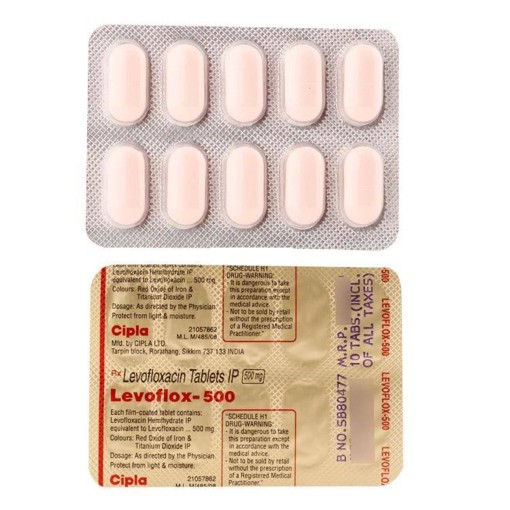

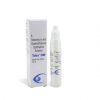
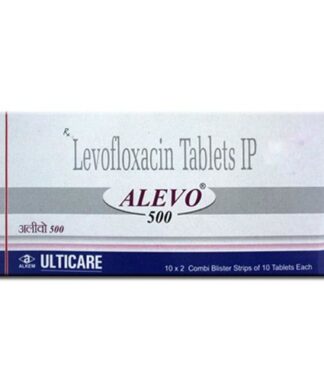
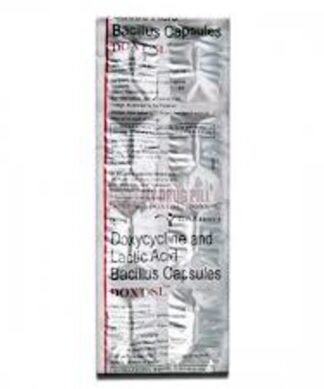
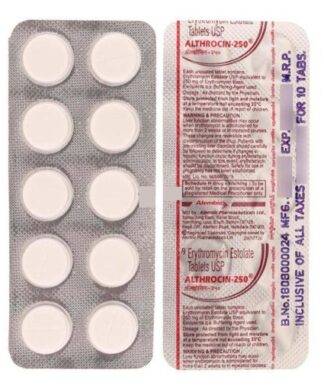
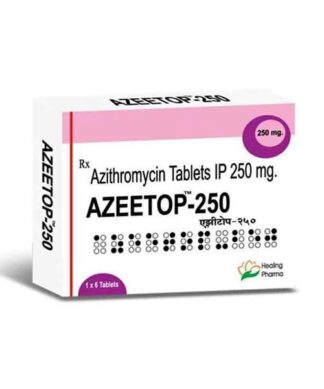
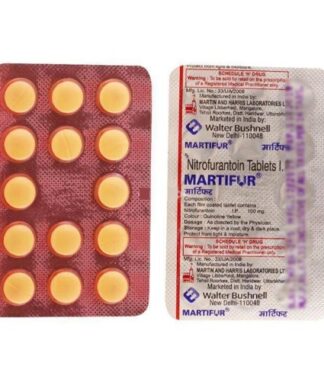



Owen –
Good quality.
Daniel –
Good service.
Lucas –
Very well worth the money.
Kayden –
The product is firmly packed.
Charles –
Good service.
Bryan –
Very well worth the money.
Camden –
Very fast delivery.
Kai –
Great service by Aryucare , products and packing is good, shipping is fast
John –
The product is firmly packed.
Ryker –
The product is firmly packed.